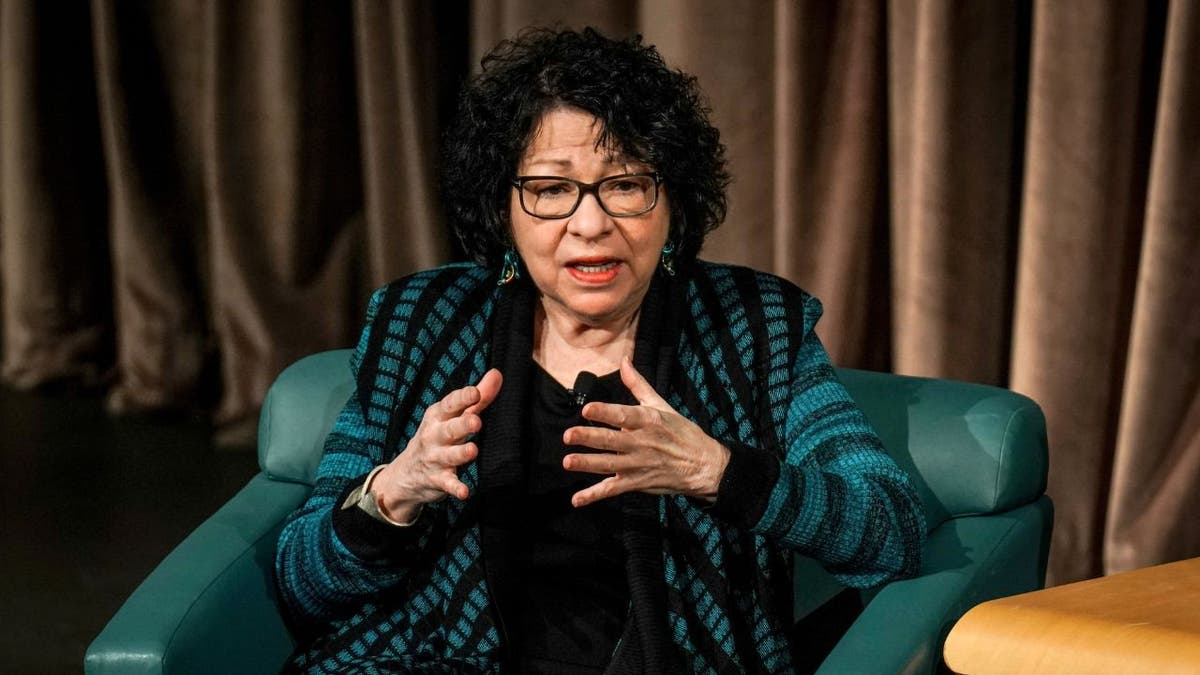
The Supreme Court on Friday ruled that an American citizen, who sued the U.S. State Department to give her noncitizen MS-13-member husband a visa, has no constitutional basis to bring such a lawsuit.
In 2010, Sandra Muñoz — an American citizen — married Luis Asencio-Cordero, a citizen of El Salvador. The couple eventually sought to obtain an immigrant visa for Asencio-Cordero so that they could live together in the United States. Muñoz filed a petition with U. S. Citizenship and Immigration Services to have Asencio-Cordero classified as an immediate relative but was denied.
The U.S. Court of Appeals for the Ninth Circuit ruled that Muñoz, as a citizen, had a constitutionally protected liberty interest in her husband’s visa application. Because of that interest, the court said, the Due Process Clause of the U.S. Constitution required the government to give Muñoz a “facially legitimate and bona fide reason” for denying her husband’s visa.
But in a 6-3 decision on Friday, the Supreme Court ruled that “[t]he bottom line is that procedural due process is an odd vehicle for Muñoz’s argument.”
SUPREME COURT UPHOLDS FEDERAL GUN BAN FOR THOSE UNDER DOMESTIC VIOLENCE RESTRAINING ORDERS

The Supreme Court in Washington, D.C. (AP Photo/Jacquelyn Martin)
It also said that court precedent “does not support it” and that “[w]hatever else it may stand for,” that precedent “does not hold that a citizen’s independent constitutional right (say, a free speech claim) gives that citizen a procedural due process right to a ‘facially legitimate and bona fide reason’ for why someone else’s visa was denied. And Muñoz is not constitutionally entitled to one here.”
In the opinion, authored by Justice Amy Coney Barrett, the court explained that Asencio-Cordero guessed that he had been denied a visa based on a finding that he was a member of MS–13, a transnational criminal gang. So he disavowed any gang membership, and he and Muñoz pressed the consulate to reconsider his case.
When he was denied, Muñoz argued that “the right to live with her noncitizen spouse in the United States is implicit in the ‘liberty’ protected by the Fifth Amendment; the denial of her husband’s visa deprived her of this interest, thereby triggering her right to due process; the consular officer violated her right to due process by declining to disclose the basis for finding Asencio-Cordero inadmissible; and this, in turn, enables judicial review, even though visa denials are ordinarily unreviewable by courts.”
“Muñoz’s argument fails at the threshold,” Barrett wrote. “Her argument is built on the premise that the right to bring her noncitizen spouse to the United States is an unenumerated constitutional right.”
ICE ORDERED TO STOP KNOCK-AND-TALK TACTICS FOR IMMIGRATION ARRESTS

MS-13, or the Mara Salvatrucha, is believed to have thousands of members nationwide. (Getty Images)
“To establish this premise, she must show that the asserted right is ‘deeply rooted in this Nation’s history and tradition.’ She cannot make that showing. In fact, Congress’s longstanding regulation of spousal immigration—including through bars on admissibility—cuts the other way,” Barrett wrote.
Justice Sonia Sotomayor, joined by Justices Elena Kagan and Ketanji Brown Jackson, dissented from the majority and cited the same-sex marriage case Obergefell v. Hodges as part of their rationale.
“‘The right to marry is fundamental as a matter of history and tradition,'” Sotomayor wrote, quoting the Obergefell opinion.
“The majority could have resolved this case on narrow grounds under longstanding precedent. This Court has already recognized that excluding a noncitizen from the country can burden the constitutional rights of citizens who seek his presence,” she continued.
“Instead, the majority today chooses a broad holding on marriage over a narrow one on procedure,” she said. “It holds that Muñoz’s right to marry, live with, and raise children alongside her husband entitles her to nothing when the Government excludes him from the country.
Sotomayor also invoked the Dobbs v. Jackson opinion that overturned Roe v. Wade.

U.S. Supreme Court Justices Sonia Sotomayor and Amy Coney Barrett (not pictured) hold a conversation with moderator Eric Liu, Co-Founder and CEO of Citizen University, during a panel discussion at the Civic Learning Week National Forum at George Washington University on March 12, 2024, in Washington, D.C. (Jahi Chikwendiu/The Washington Post via Getty Images.)
“Despite the majority’s assurance two Terms ago that its eradication of the right to abortion ‘does not undermine . . . in any way’ other entrenched substantive due process rights such as ‘the right to marry,’ ‘the right to reside with relatives,’ and ‘the right to make decisions about the education of one’s children,’ the Court fails at the first pass,” she said.
CLICK HERE TO GET THE FOX NEWS APP
“Muñoz may be able to live with her husband in El Salvador, but it will mean raising her U. S.-citizen child outside the United States. Others will be less fortunate. The burden will fall most heavily on same-sex couples and others who lack the ability, for legal or financial reasons, to make a home in the noncitizen spouse’s country of origin,” she said.
“For those couples, this Court’s vision of marriage as the ‘assurance that while both still live there will be someone to care for the other’ rings hollow,” Sotomayor concluded.








